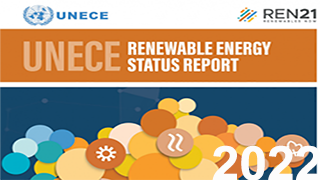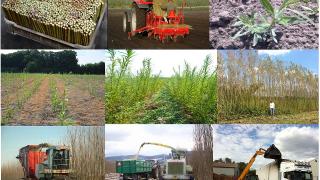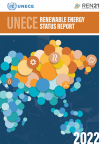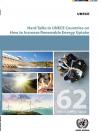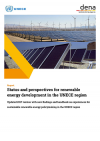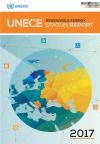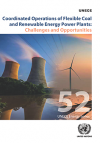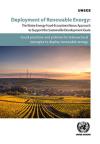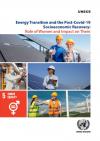Renewable Energy
Introduction
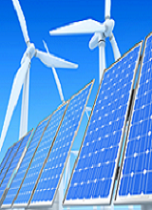
The Group of Experts on Renewable Energy was established to carry out action-oriented, practical activities on renewable energy. The Group of Experts on Renewable Energy focuses on activities that help significantly increase the uptake of renewable energy in the region and that help achieve the objective of access to energy for all in the UNECE region. The Group of Experts facilitates regulatory and policy dialogue and sharing of best practices on various renewable energy sources, including biomass, with a view to increasing the share of renewable energy in the global energy mix.
Work Plan of the Group of Experts on Renewable Energy for 2024-2025
In focus
Highlights
UNECE Study to Support Energy Crops Along Roads and Highways in Ukraine: objective to analyze potential for the development of energy crops along highways, taking into account the use of crop plantations as highway protection as well as for economic and environmental benefits.
UNECE Sustainable Energy Division is implementing extrabudgetary project “Addressing the compounded food and energy crisis in Ukraine through innovative technologies and adaptive agricultural practices.” Objective: To equip the Government of Ukraine with an objective and comprehensive analysis of the biofuel production potential to solve the compound food/energy crisis in Ukraine.
The REN21 UNECE Renewable Energy Status Report 2022: the Report was prepared jointly by the Renewable Energy Policy Network for the 21st Century (REN21) and the United Nations Economic Commission for Europe (UNECE). It provides the latest update on the status of renewables and energy efficiency in Albania, Armenia, Azerbaijan, Belarus, Bosnia and Herzegovina, Georgia, Kazakhstan, Kosovo, the Kyrgyz Republic, Moldova, Montenegro, North Macedonia, the Russian Federation, Serbia, Tajikistan, Turkmenistan, Ukraine and Uzbekistan.
Financing Energy Efficiency and Renewable Energy Investments for Climate Change Mitigation - FINAL REPORT - The purpose of this final report is to review the implementation of the project Financing Energy Efficiency and Renewable Energy Investments for Climate Change Mitigation (FEEI) and to evaluate the extent to which the main project objectives were achieved. (7 November 2018)
UNECE Sustainable Energy Division implemented Menu of Efficient and Economic Technologies and Policies to Promote Them in the ECE Region is here proposed as a working document for a framework to exchange best practices in policies in order to accelerate renewable energy uptake in the region. It is the basis for a practical tool for collection, classification, exchange and use of information on concrete cases.
UNECE Sustainable Energy Division implemented a field project "Application of biogas technology model for rural areas in Kyrgyzstan: Objective: To introduce a cost-effective green technology biogas mode in the rural area of Kyrgyzstan. (October 2018)
UNECE Renewable Energy Status Report: Renewable Energy Policy Network for the 21st Century (REN21) and the UNECE have joined together to produce the UNECE Regional Renewable Energy Status Report 2015: ToR of the UNECE Status Report.
Recent Events
Skopje North Macedonia
Hotel Hills Sarajevo Bosnia and Herzegovina
Tempus, Palais des Nations Geneva Switzerland


